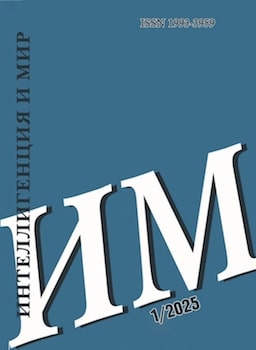Неосуществившиеся проекты в области церковно-школьного образования в России в конце XIX—начале XX века
Unimplemented projects in the field of church-school education in Russia at the end of the XIX — beginning of the XX century
Author(s): Yuri Anatolievich Ivanov, Tatyana Aleksandrovna KrasnitskayaSubject(s): School education, History of Education, 19th Century, Pre-WW I & WW I (1900 -1919), Eastern Orthodoxy
Published by: Ивановский государственный университет
Keywords: Church intelligentsia; the Russian Orthodox Church; church schools; the system of church-school education; two-class school; church-teacher schools; Church Teachers' Institute; Church intelligentsia;
Summary/Abstract: The article analyzes projects in the field of church school education in Russia in the late XIX — early XX centuries based on a wide range of sources, primarily archival and those introduced into scientific circulation for the first time. The focus is on the organization of church teacher training schools in different regions of the country, as well as the development of a project for a church teacher training institute in Moscow. It is concluded that in addressing the issue of providing primary church schools with teaching staff, the School Council under the Holy Synod pursued a consistent policy based on realities and relying primarily on its own resources. It was important not only to fill vacancies in literacy and parochial schools, but also to provide high-quality training for teachers. The emphasis was placed on the lowest type of teacher training school — the second-class school, which required less financial costs for its organization and maintenance, but over time ceased to meet the needs of both the system itself and the population. The organization of church teacher training schools made it possible to resolve the issue of high-quality training of teachers to a greater extent, but it was not possible to fully implement it. The main obstacle was the lack of financial resources in the department of the Orthodox confession. At the same time, other situational factors also influenced the implementation of the project. The logical continuation and at the same time the final stage in the training of personnel for church schools was supposed to be the unrealized project of the church-teaching institute in Moscow. The non-realization of projects in the field of church-school education for objective and subjective reasons became one of the factors that held back the formation of a special group of church teaching intelligentsia in Russia in the late XIX — early XX centuries.
Journal: Интеллигенция и мир
- Issue Year: 2025
- Issue No: 1
- Page Range: 77-96
- Page Count: 20
- Language: Russian

